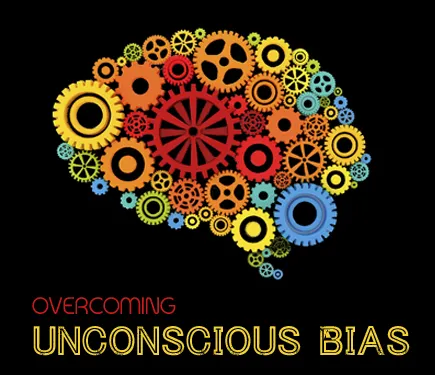
A bias is defined by Merriam-Webster as “a particular tendency, trend, inclination, feeling or opinion, especially one that is preconceived or unreasonable.” This definition focuses on conscious bias or explicit bias. Likewise, unconscious or implicit bias refers to negative and positive stereotypes that exist in our subconscious and affect our decisions, behaviors, and interactions with others. Unlike conscious bias, unconscious bias is often triggered automatically and unknowingly since our minds are processing so much information, oftentimes without conscious awareness. Now, there is growing research focusing on unconscious bias because it is far more prevalent and subtle than conscious bias. It is also often incompatible with what one recognizes as their conscious values.
Just last month, Howard Ross, came to the NIH to speak about unconscious bias. Ross is a business consultant and the Founder/CLO of Cook Ross, Inc. His work has been featured on NPR and in the New York Times. In case you missed his talk, you can view the full archived videocast here.
In his presentation, he delineated six key takeaways on how to mitigate your bias, including:
1. Recognize and accept that you have bias.
2. Develop the capacity to shine a flashlight on yourself.
3. Practice “constructive uncertainty”. This is coined term from Ross. Since our biases are often fast and almost reflexive, Ross suggests pausing to pay attention to what is happening beneath these judgments and assessments. Taking a moment to acknowledge that your interpretation is yours alone and might not be entirely accurate is an act in practicing constructive uncertainty.
4. Explore awkwardness and discomfort.
5. Engage with those you consider others and expose yourself to positive role models in that group.
6. Get feedback.
If you want to learn more about each point, please take some time to watch the videocast. It is well worth it to hear Ross go into detail about each of his tips.
One thing he addressed in his talk though is how there is a necessary movement away from the previously held ideology of colorblindness. A great article in the Atlantic speaks to this point:
“How many times have you heard someone say that they “don’t see color,” “are colorblind,” or “don’t have a racist bone in their body?” Maybe you’ve even said this yourself.
Many sociologists, though, are extremely critical of colorblindness as an ideology. They argue that as the mechanisms that reproduce racial inequality have become more covert and obscure than they were during the era of open, legal segregation, the language of explicit racism has given way to a discourse of colorblindness. But they fear that the refusal to take public note of race actually allows people to ignore manifestations of persistent discrimination.”
How can you go about addressing and recognizing your bias?
It can be tough to take some time to be introspective; however, there are some activities that can help facilitate this process. The first activity is through Project Implicit and it aims to measure attitudes and beliefs that people might be unwilling or unable to report. The Implicit Association Test (IAT) can be especially illuminating for folks since it might show an implicit attitude that you did not otherwise recognize. There are many IAT tests that you can take here. Some tests that might be of specific interest include: gender-science IAT, gender-career IAT, race IAT, religion IAT, sexuality IAT, and many more.
A second activity is a videogame called “Fair Play” designed to address implicit race bias through active perspective taking. Faculty, scientists, postdocs and graduate students are encouraged to use this game as a way to explore how unconscious bias affects STEM students’ success. This interactive game helps you learn to identify common bias concepts such as: color-blind racial attitudes, competency proving, failure to differentiate, status leveling and tokenism. If you are interested in learning more about this game, please go to: http://fairplaygame.org/
If you are at the NIH, the OITE regularly offers workshops on diversity. Check the calendar of events regularly for updates; however, one coming up in May that might be of interest to you is Workplace Dynamics V: Diversity in a Multicultural Society.




